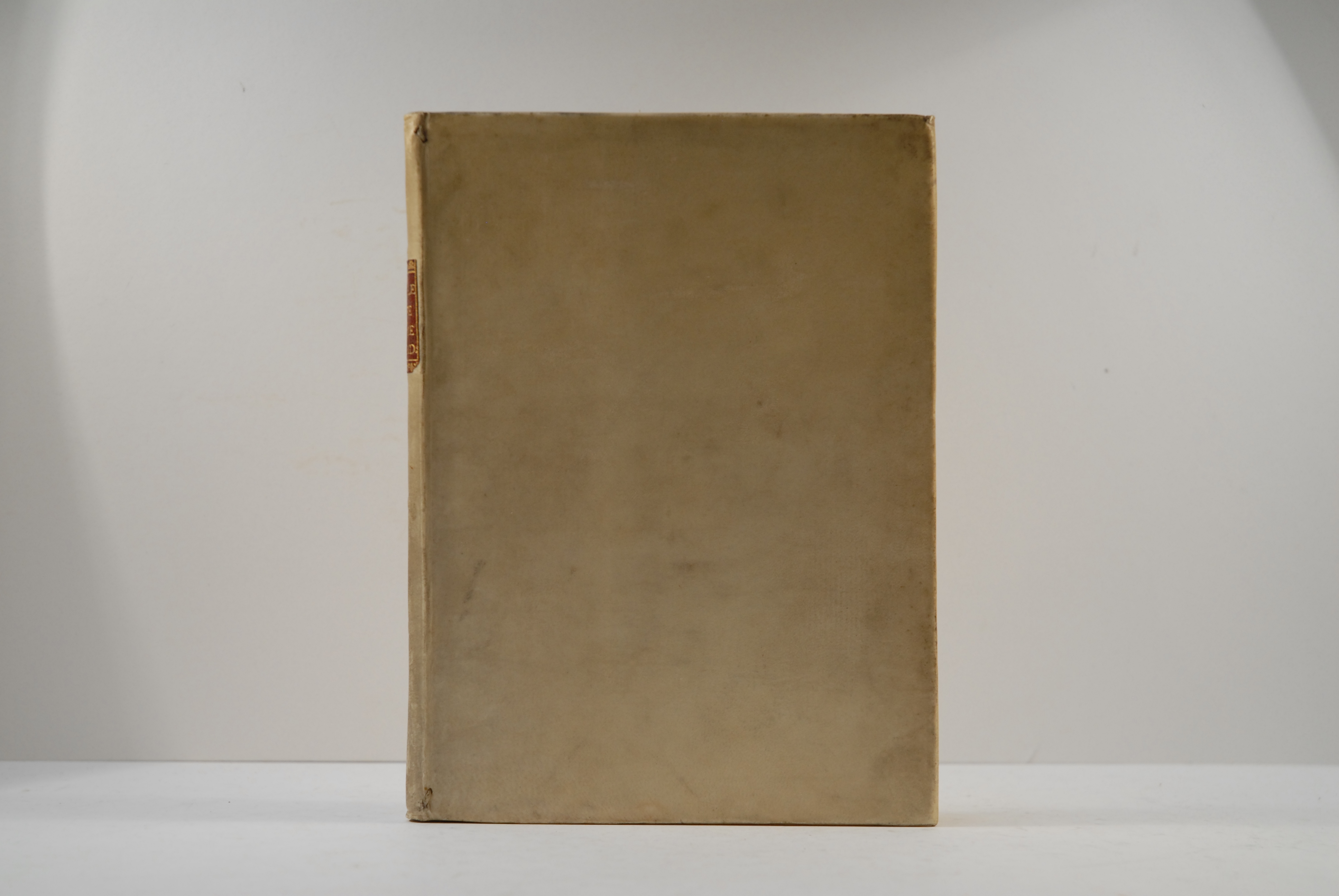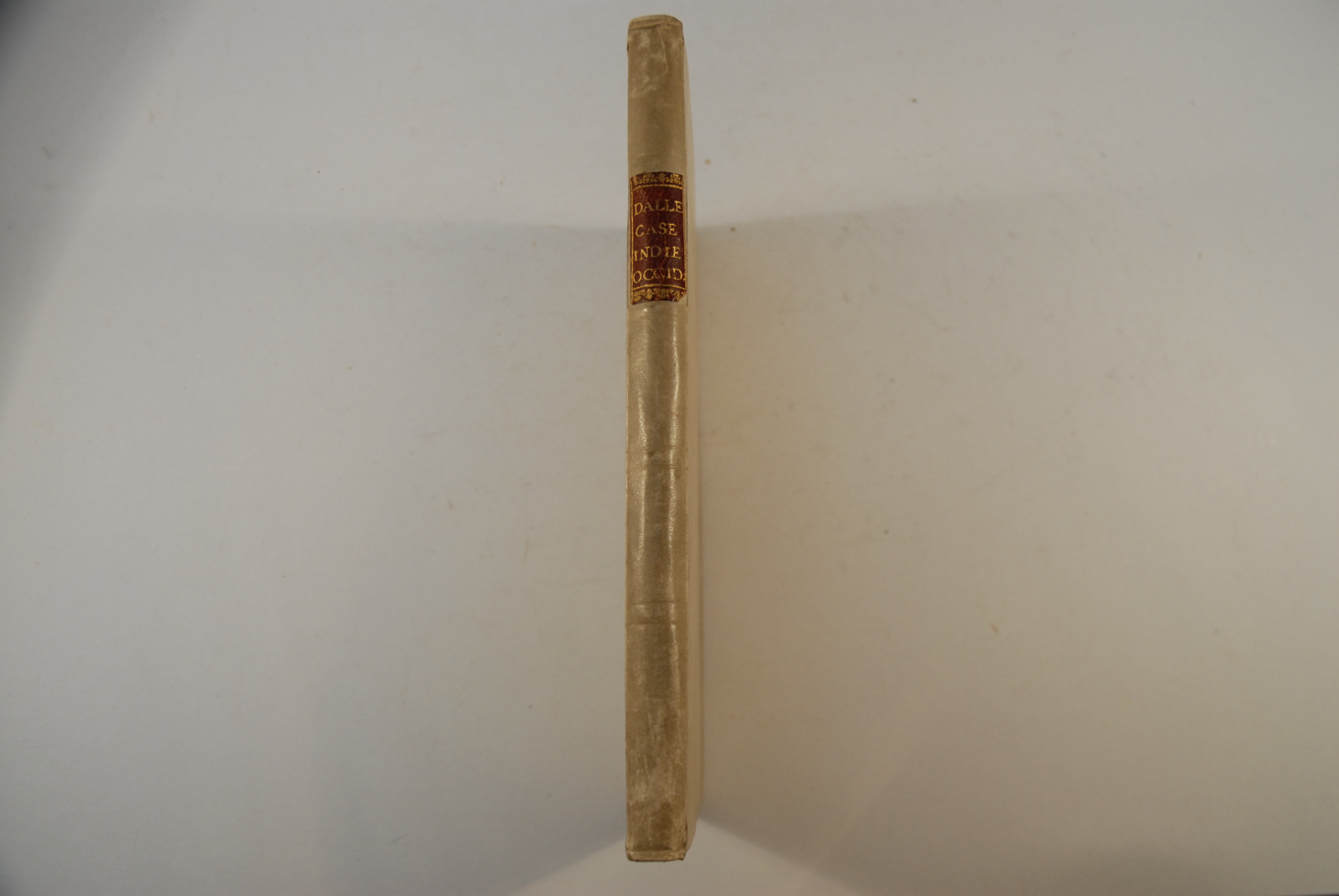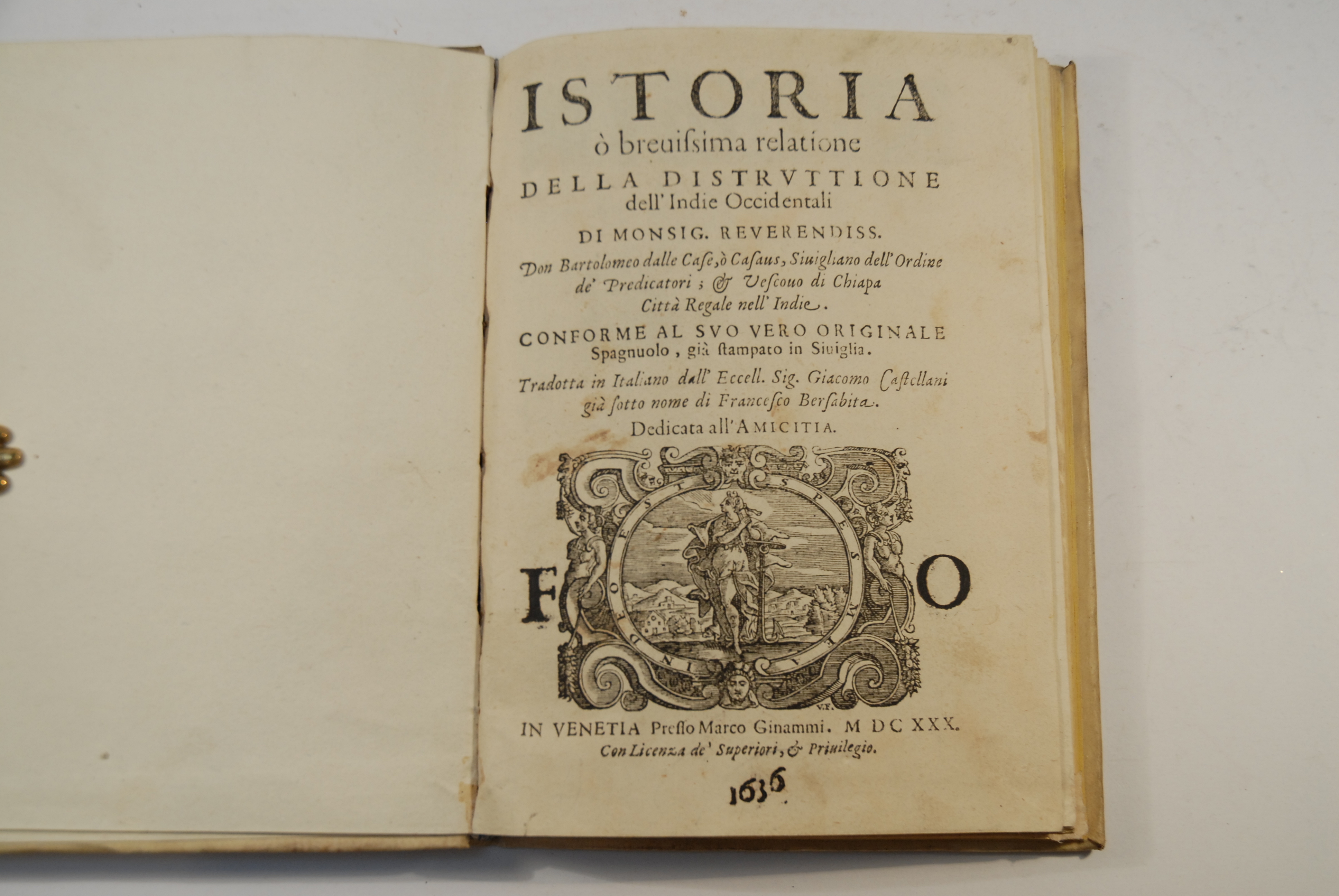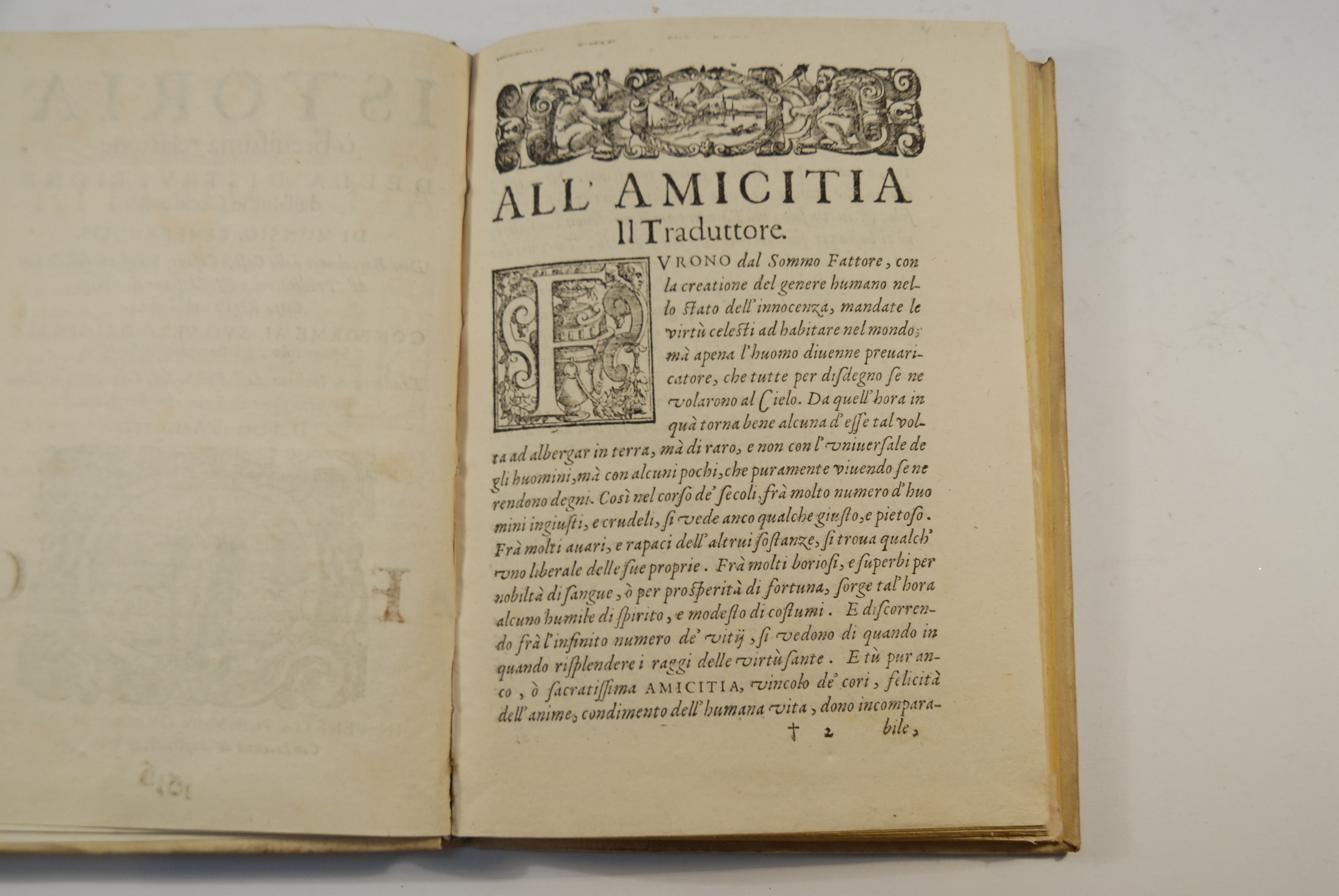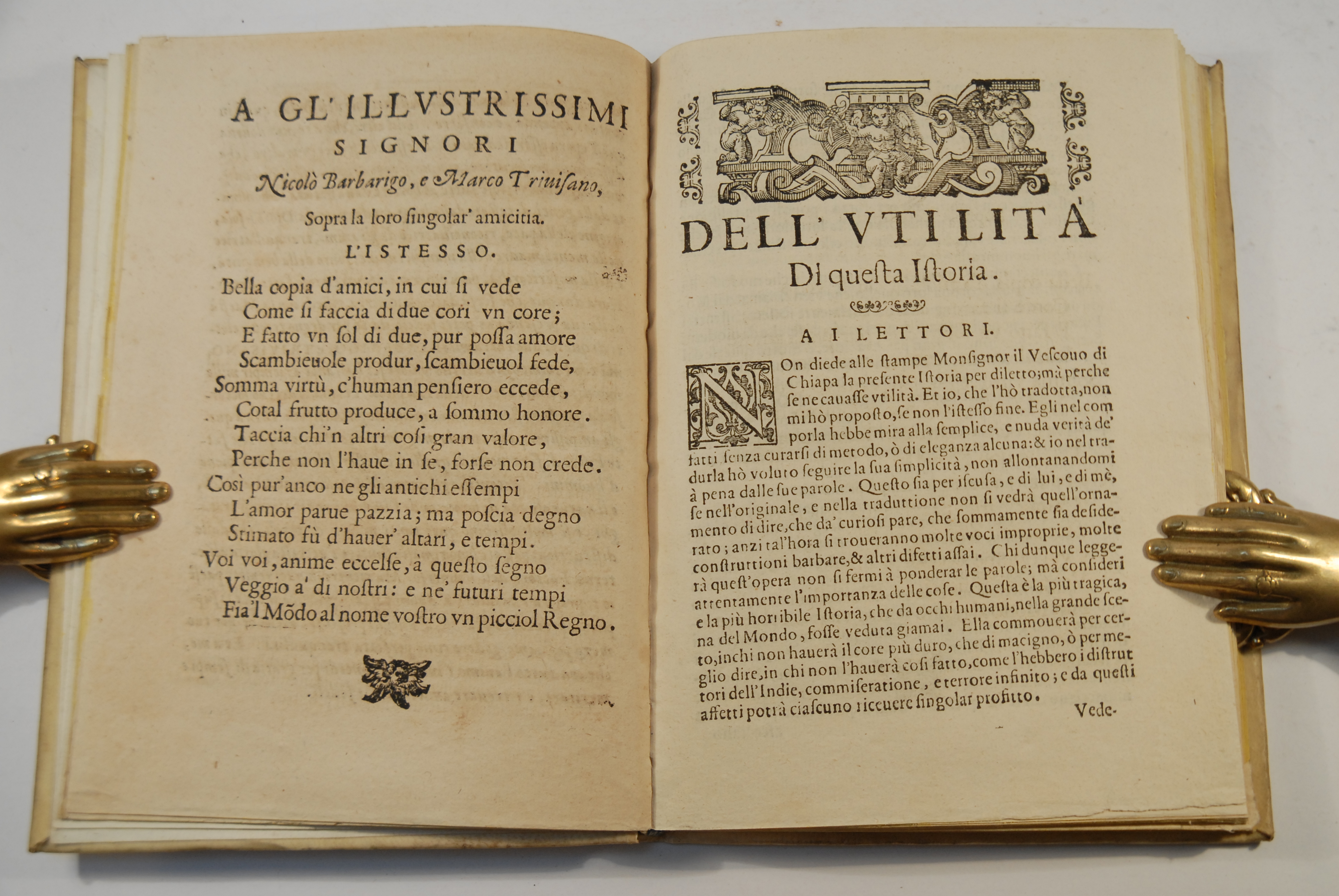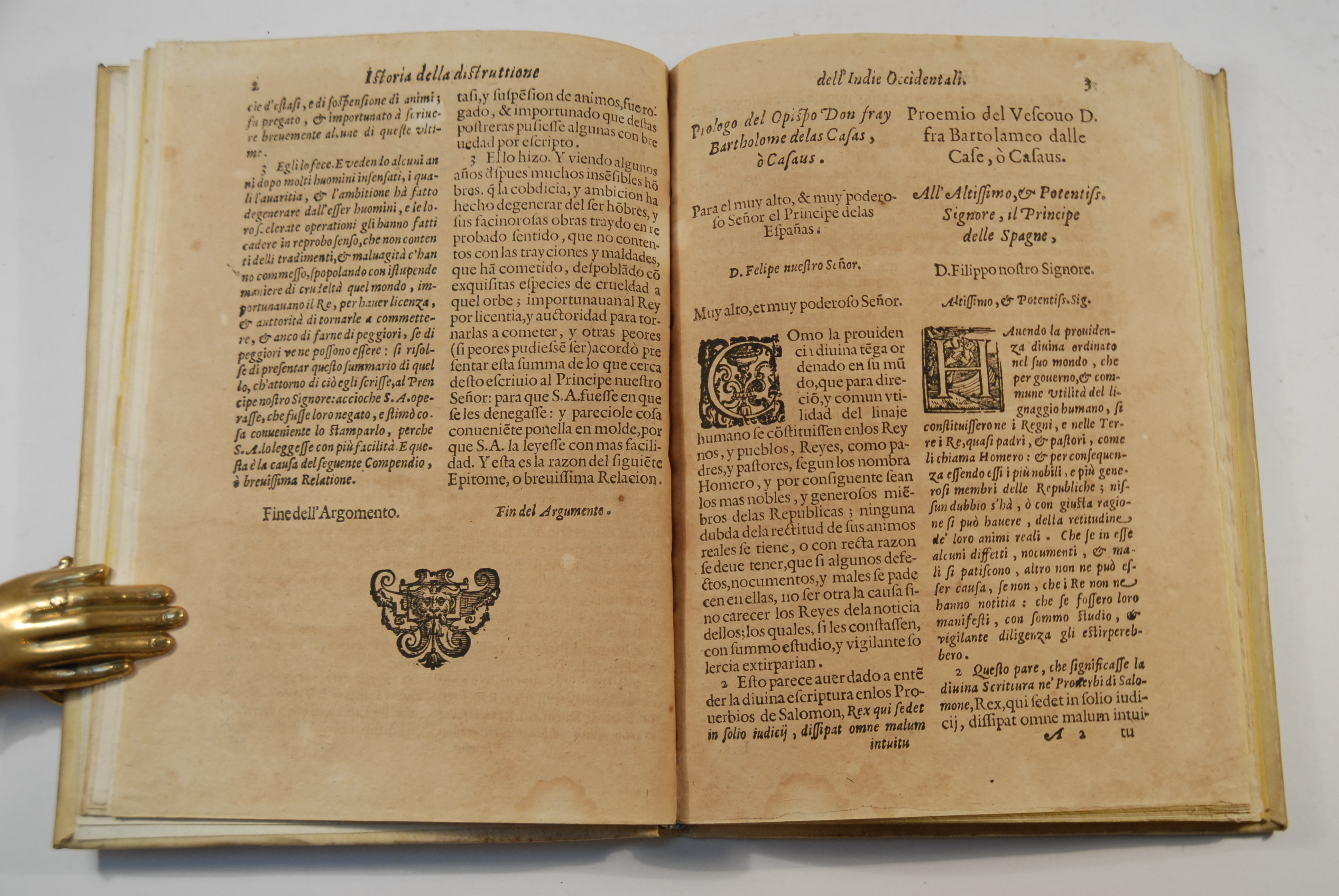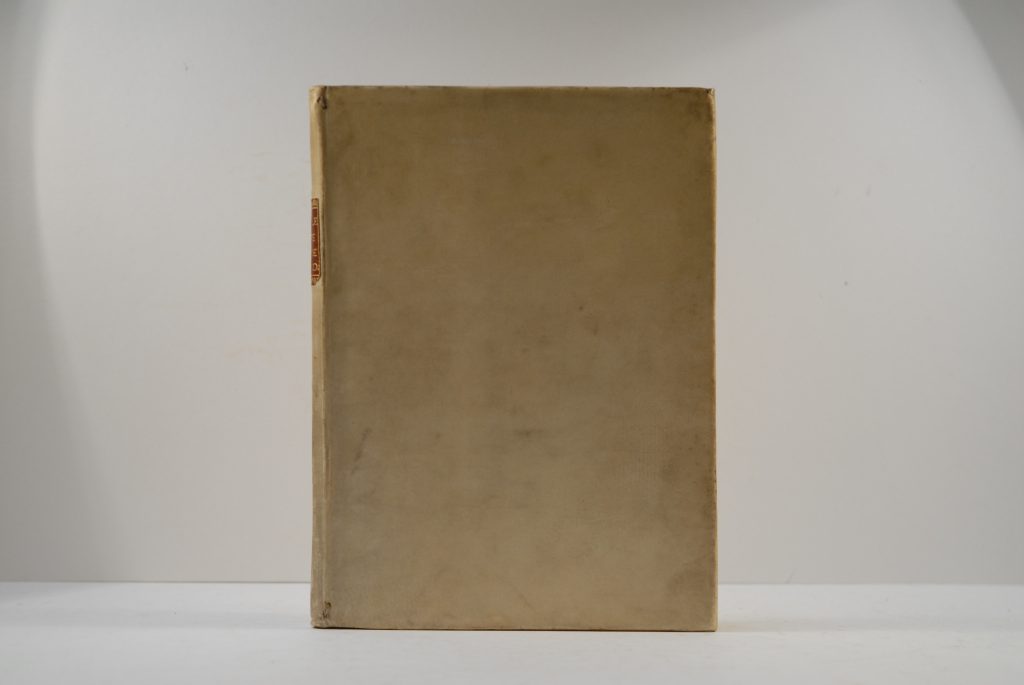CASAS Bartolomé de las
Istoria ò breuissima relatione della distruttione dell\' Indie Occidentali
Venice, Marco Ginammi, 1630£3,950.00
4to. pp. [xvi] 150 (ii), in double column, Spanish text in Roman letter, Italian translation in Italic. Title with large woodcut printer’s device, large woodcut historiated initials and headpieces, woodcut and typographical tailpieces, the letters F and O stamped on each side of printer’s device on title with the date 1636 below, underlinings and annotation in red pencil. A bit browned in places, light intermittent spotting. A good copy in vellum over boards c1700, all edges yellow.
Second edition of the first Italian translation of Las Casas’ ‘Brevissima relation’ a fundamental text in the history of the Spanish conquest, and in establishing the rights of indigenous Indians. Las Casas was the first great historian of the New World and famously argued the humanity of indigenous Americans and African slaves in the Valladolid debate of 1550-1551, against the counter-arguments of Juan Ginés de Sepúlveda. While a boy in 1493, he witnessed the return to Seville of Christopher Columbus after his first voyage, and later the same year Las Casas’ father Pedro and several of his uncles embarked for the New World as members of Columbus’ second expedition. With his father, Las Casas emigrated to the island of Hispaniola in 1502 under Nicolás de Ovando, and witnessed the brutalities committed against the Tainos. He played a significant historical role as an eyewitness to one of the most important eras in history as he made an abstract and copy of the diary Christopher Columbus kept of his voyages and incorporated much of Columbus writings, diary and log in his own history. Today, both the Columbus diary as well as the copy have disappeared but Las Casas’ abstract survived.
His work is a primary source for the early period of Spanish Colonialism. In 1550 he took part in official debates on the status of indigenous peoples and used this opportunity to prepare a series of nine essays that subsequently appeared in Seville in 1552 and 1553. He was keenly aware of the power of the printed word, so much so he ignored the need to secure royal permissions before publishing. With their wide ranging indictment of Spanish atrocities, they had an immediate impact in Europe. They were widely translated and frequently reissued, especially in anti-Spanish contexts. Las Casas became Spain’s witness against itself. The critique was particularly powerful because Las Casas was not only a master of philosophy and logic, he was an acute observer who reported on the situation of the native populations in an immediate and persuasive style. The work is of immense significance, both for its immediate effect in reforming the Spanish colonial system, and as an extremely early example of European concern with the human rights of indigenous peoples. It was his descriptions of the plight of the native populations that early modern Europeans remembered.
1) BM STC It. C17 p.196 (1626 edition only). Alden, European Americana, 630/41. Sabin 11243. Palau 46955. 2) Not in BM STC It. C17. Alden, European Americana, 636/14. Sabin 11246. Palau 46956.In stock


